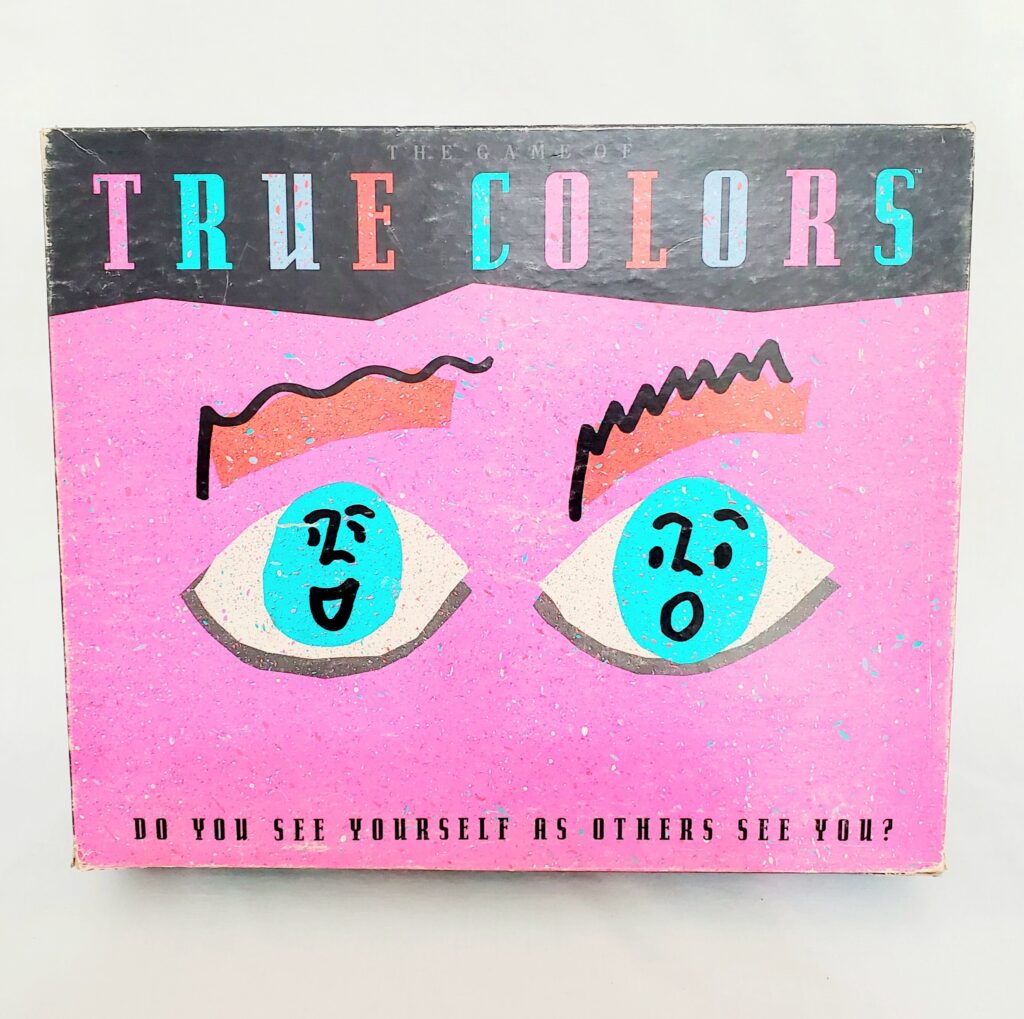
To listen to today’s reflection as a podcast, click here
It seemed like a great idea.
More than 30 years ago, our small group, which was comprised of six married couples, decided to take a break from our customary Bible study and play a game.
It was True Colors, a Milton Bradley party game that had just hit the market. The accompanying booklet noted, “True Colors is the perfect way to find out what your friends really think about you!” It promised to be an interesting exercise in social self-awareness, appropriately punctuated by laughter and ah-ha’s.
For me, it turned out to be an experience that I still remember three decades later.
The game is simple. Someone draws one of what Milton Bradley describes as “170 hilarious questions.”
For instance: “Who has the most money on them right now?” Everybody casts two secret votes, writing down the names of two people in the room. Then comes a guessing game – who do you think got the most votes, a few votes, or perhaps no votes at all? The truth comes out when the votes are tallied.
Sample questions include:
Who is the last person to leave the party?
Who would be the worst business partner?
Who is the dorkiest?
Who is the coolest?
Who can sing the best?
Whom do you not want to cook dinner tonight?
We gave ourselves permission as a group to pass on questions like, “Who is the drunkest right now?”
About halfway through the game, this question came up: “Who would you like to be your brother or sister?” Everybody voted. We made our guesses. We checked the tallies. Everybody got at least one vote.
Except for me. I got none.
If the question had been different – such as “Who would you call if you were playing Who Wants to Be a Millionaire and you could phone one friend?” or “Who would you ask to help you understand John Calvin’s perspectives on limited atonement?” – I knew I would have gotten a few votes.
But nobody wanted to be my brother or sister.
Even Mary Sue didn’t vote for me – although, when I thought about it, that would have been a little creepy.
The rest of the group was compassionate. This was the moment when we began to suspect that maybe True Colors wasn’t the team-building, friendship-fostering, love-generating experience we thought it might be.
“It’s no big deal,” I assured everybody. Except, to tell the truth, it felt like it was at least a little deal.
In the years since that gathering, when group members email me, they occasionally add a P.S.: “I really would like you to be my brother!” That’s been sweet. It’s amazing how that one question has sustained so much conversation.
It’s interesting, but no one in the room at that time (including me) thought to say something like, “The good news is that all of us are brothers and sisters anyways.”
That’s one of the awesome perks of following Christ. When you throw in your lot with Jesus, you get a new family, too.
Pet adoption agencies proclaim the joy of helping dogs and cats find their “forever families.” In the case of Christians, that’s literally true. We’re adopted by grace into a new kind of community – one that will become infinitely richer when we experience the healing and wholeness promised in the next world.
During Bible times, families were regarded as almost sacred relational webs. No one seriously questioned that loyalty to parents, grandparents, siblings, and children came before almost everything else.
That’s why Jesus’ remark about the identity of his own family is so shocking.
When someone in the crowd informs Jesus that his mother and brothers are looking for him, he can do what a “virtuous person” would surely do – excuse himself to see if there is an important matter to which he must attend.
Instead, he stretches out his hand toward his disciples and says, “Here are my mother and my brothers! For whoever does the will of my Father in heaven is my brother and sister and mother” (Matthew 12:48-50).
In the minds of many listeners, this would have sounded like social anarchy – and a violation of the commandment to honor one’s father and mother to boot.
But Jesus is casting a revolutionary vision for a new kind of family – a set of loyalties and responsibilities that supersede even those connected with our chromosomes.
To top it off, we find this statement in Hebrews 2:11:
“Both the one who makes people holy and those who are made holy are of the same family. So Jesus is not ashamed to call them brothers and sisters.”
That can only mean one thing, you know.
I’m willing to play True Colors with Jesus any time, anywhere.
